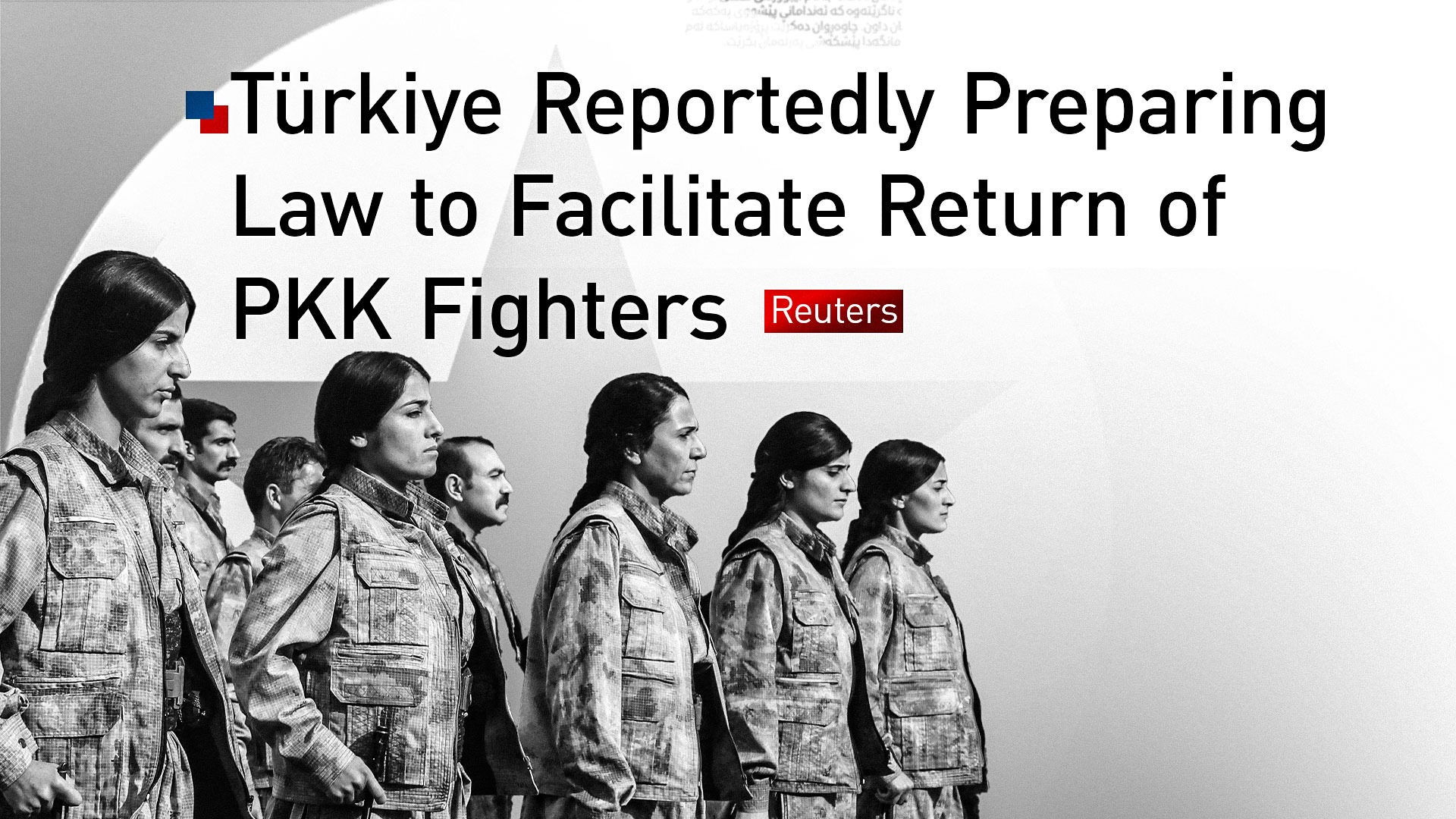Türkiye Reportedly Preparing Law to Facilitate Return of PKK Fighters Under Peace Plan
Türkiye is preparing a PKK-specific law to facilitate the return of thousands of fighters and civilians, with initial waves of 1,000 non-combatants and 8,000 fighters after screening.

ERBIL (Kurdistan24) – Türkiye is preparing legislation that would allow thousands of Kurdistan Workers’ Party (PKK) members and civilians to return from their mountain hideouts as part of an ongoing peace process aimed at ending decades of conflict, Reuters reported in an exclusive story on Friday.
According to Reuters, a senior Middle East official and a Kurdish political source in Türkiye confirmed that the proposed law would permit safe returns for those wishing to reintegrate into civilian life while stopping short of granting a general amnesty for past crimes. The report adds that some senior PKK commanders may be relocated to third countries under the plan.
The initiative reportedly represents one of the final and most sensitive phases in a peace process launched a year ago to end a four-decade war that has claimed more than 40,000 lives.
The Middle East official, speaking anonymously, told Reuters that legislation enabling the returns could be introduced to the Turkish parliament before the end of November. The law would allow an initial wave of 1,000 civilians and non-combatants to return first, followed by about 8,000 fighters after individual screening and verification procedures.
However, Türkiye is said to have rejected repatriating around 1,000 senior PKK figures, preferring instead to relocate them to a third country, possibly in Europe. Negotiations on this point are ongoing, amid concerns that excluding top PKK leaders could fuel future instability.
The report notes that Türkiye’s National Intelligence Organization (MIT), which has led negotiations with the PKK, declined to comment on the proposal. The PKK has also not issued any immediate statement.
Reuters cites Tayip Temel, deputy co-chair of the pro-Kurdish DEM Party, as confirming that “work is underway on a special law for the PKK to enable the democratic and social reintegration of its members.” Temel said the law would apply to both civilians and militants, emphasizing that it would be “comprehensive and cover all returnees.”
He acknowledged that Ankara had raised the possibility of sending some PKK figures to third countries, though he noted that such arrangements would need to be coordinated with host nations.
Another source within the DEM Party, which has cooperated with the government on aspects of the peace process, said the draft legislation would be PKK-specific and avoid the politically sensitive term “general amnesty.” Different categories of returnees would face different legal procedures, and some former fighters would likely undergo investigation and trial upon return.
Numan Kurtulmus, head of Türkiye’s parliamentary Reconciliation Commission, stated earlier that any legal framework would depend on the complete disarmament and verified dissolution of the PKK.
“Once Türkiye’s security and intelligence units have confirmed that the organization has truly laid down its arms, the country will enter a new phase of legal regulations aimed at building a terror-free Türkiye,” Kurtulmus said.
This development follows a series of symbolic gestures by the PKK, including a May announcement to disarm, a July weapons-burning ceremony, and an October withdrawal of fighters from Turkish territory.
The move, if realized, could have significant regional implications — reducing tensions in Iraq, where PKK bases are located, and in Syria, where Kurdish fighters have cooperated with U.S. forces against ISIS.
Human Rights Watch (HRW) urged Turkish lawmakers to use the peace process to reform laws that have long been used to prosecute and silence non-violent Kurdish activists.
“The commission has a unique opportunity to help shape a post-conflict society,” said Hugh Williamson, HRW’s Europe and Central Asia Director, urging Ankara to “repeal abusive laws used to marginalize people.”
If implemented, this law could mark the most consequential step toward reconciliation since the collapse of the previous peace talks in 2015. Observers note, however, that the success of any agreement will depend on Ankara’s political will and the PKK’s full compliance with disarmament commitments.
For now, all eyes are on the Turkish parliament, where the proposed bill could be tabled before the end of November, signaling what might become a defining moment in Türkiye’s decades-long Kurdish question.